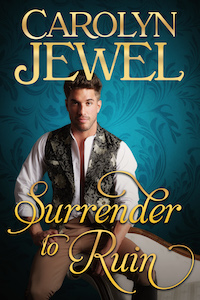The Modern Land Steward by John Lawrence, published in 1806.
Note: A version of this was originally posted at my website. This post is expanded to include more about Stewards.
It will be sufficient fbr our purpose, to define the needful qualifications, of each, of three orders of stewardship, namely, of The Superintendant OR COMPTROILING AGENT, THE LAND-STEWARD OR Agent, properly so called, and of The HouseSteward. A thorough knowledge of common accounts, and of the nature of markets, bargaining, and of the proper modes of settlement with tradesmen, will, with the aid of common honesty and discretion, suffice to form the HouseSteward.
But with regard to the first description, or the Chief Agent, the trust is of a high and extraornary nature, nor do the opportunities of tilling such an office to advantage, frequently occur. It is even matter of great public concernment, since the well or ill-management of extensive estates may in a variety of views be highly interesting to the community’. How much then does it concern our great landholders and proprietors, both on their own private, and the public account, to search out the most capable men for this important department.
To be properly qualified for chief agent to a great estate, a man should have attained that thorough knowledge of the business of life, that tried experience in men and things[…]
Let the steward provide a Journal, or Day-book, and a Ledger, with two other books, having an alphabet, and the pages marked, to be styled the Memorandum Ledger, and the General Inventory, and let him always go provided With a POCKET-MEMORANDUM book.
Sidebar: I am using that pocket-memorandum in a novella I’m writing.
Here is a list of things logged by a Steward
Paid for bread and flour
Paid for a Cheshire cheese, 511b. at £3id.
Paid for oats, eight quarters, at 10*.
Paid grocer, for candles, &c …
Paid for a hunting saddle for Your .
Paid for ditto for My
Paid for a new set of harness for six cart-horses
Paid ironmonger, for tnxes, &c
Paid coachmaker, for chariot
Paid for a set of harness for six horses
Paid brazier, for a washing copper, wt.52lb. at £6d.
Paid for a garden engine
Paid for a garden roll six feet, at 2s. 6d.
Paid cooper, for six iron-bound hogsheads, at 22s
Paid Your——— by cash, bills, &c
Paid butcher’s bill
Paid for a cask of vinegar 16 gallons,at 16i
Paid for 20 ton of coals, at 10s
Paid for carriage of ditto
Paid housekeeper her bill for incidents
Paid myself my year’s wages
Paid housekeeper her year’s wages ….
Paid the keeper his year’s wages
Paid the butler ditto
Paid the head footman his year’s wages
Paid the under footman ditto
Paid huntsman ditto
Paid the dog-boy ditto
Paid the principal gardener ditto
Paid the under gardener ditto
Patd the head groom ditto
Paid the under groom ditto
Paid the coachman ditto
Paid the postillion dilto
Paid the game-keeper ditto
Paid labourers wages
There are several entries like this:
Paid collector, for two quarterly payments of the land-tax, from Lady-day to Michaelmas, 17—, for the manor of A. as appears by his receipt.
The total amount of land taxes paid is £499.11.5
Total yearly expenses for this particular Lord —- are £6139.2.41
The ledger example is for recording income received and money spent for tenant and household-related expenses.
This line is what made me pause, the author has it labeled for the year 1800:
Agreed this day with R. S. to accept as a compensation for a heriot due at the death of his father…………… £26 5
I admit I had to look up “heriot”
her·i·ot
noun
British historical
noun: heriot; plural noun: heriots
- a tribute paid to a lord out of the belongings of a tenant who died, often consisting of a live animal or, originally, military equipment that he had been lent during his lifetime.
Right. Even if this is only a made up example and not drawn from an actual example, (which I think it is since the author says he got examples from his own work and others), it’s not something I’ve run across in any of my previous research in the Regency.
R.S’s father died, and he has to pay Lord Soandso £26 5. Sigh.
Also interesting is that J.B paid half a year’s rent of £79.5 and D.S paid a full year at £125
J.S. Sadler was paid the full amount of his bill £19.10 as was P.A. Smith in the amount of £21.5
The Groom was paid expenses of £4.3.11
I just paged forward, there are several examples, plainly drawn from documents lent to him, that mention heriots:
Received of (J. D. a composition for three heriots, instead of his three best beasts or goods, due at the death of his father E. D
There are many of them.
Trees were branded, and boy, they were quite profitable.
When an account of the timbers is taken, they may be marked with iron stamps, the rough part of the bark being taken off with the hatchet before the stamp is applied, that the impression may be made fair; and that it may be lasting, the stamp should go no deeper than the bark, but it may be renewed.
Then I came to a long rant about lazy poor people and how taking away the commons and giving them to “ingenious gentlemen” to rent back to the poors who would then be no longer lazy, and, well, I’ve had about enough of that kind of talk lately so I stopped reading.

